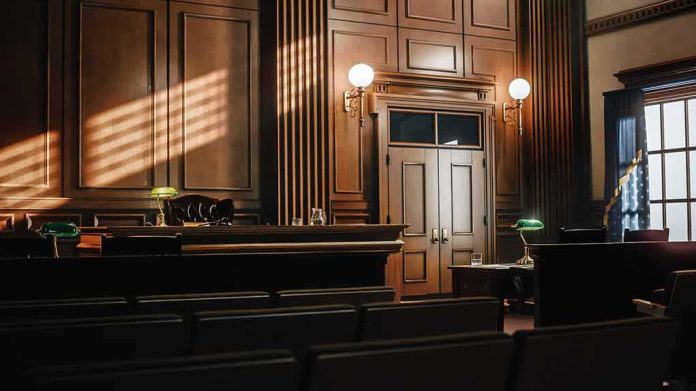
President Trump escalates battle for executive authority as he asks Supreme Court to validate firing of Biden-appointed CPSC commissioners, challenging decades-old limits on presidential power over independent agencies.
Key Takeaways
- President Trump’s administration has asked the Supreme Court to allow the firing of three Consumer Product Safety Commission members appointed by Joe Biden.
- A federal judge in Maryland ruled these dismissals unlawful, a decision later upheld by the U.S. Court of Appeals for the 4th Circuit.
- Federal law currently restricts presidential removal of CPSC commissioners to cases of “neglect of duty or malfeasance in office.”
- This marks the administration’s third emergency appeal to the Supreme Court involving presidential power to remove executive officers.
- The case represents a significant test of presidential authority over independent regulatory agencies.
Presidential Power Challenged in CPSC Commissioner Firings
The Trump administration has escalated its legal battle to expand presidential authority by requesting the Supreme Court to validate the removal of three Consumer Product Safety Commission members. The commissioners in question – Mary Boyle, Alexander Hoehn-Saric, and Richard Trumka Jr. – were all appointed during the Biden administration with terms scheduled to end in 2023, 2027, and 2028 respectively. President Trump’s attempt to dismiss these officials challenges longstanding restrictions on executive power over independent regulatory bodies.
After the commissioners were removed, they promptly filed legal action and secured a favorable ruling from a federal judge in Maryland who ordered their reinstatement. The judge determined that their dismissals violated federal statutes specifically designed to insulate CPSC members from political pressure. This protection stems from laws limiting presidential removal authority to specific grounds of “neglect of duty or malfeasance in office” – restrictions the administration now argues unconstitutionally hamper executive authority.
Legal Battle Escalates to Supreme Court
The administration’s position was further challenged when the U.S. Court of Appeals for the 4th Circuit upheld the lower court’s decision to reinstate the commissioners. This setback prompted Solicitor General D. John Sauer to file an emergency appeal to the Supreme Court, arguing that the district court’s order fundamentally undermines the president’s constitutional powers over the executive branch. The appeal represents a determined effort to reshape the relationship between the presidency and independent regulatory agencies.
This case marks the third emergency appeal involving presidential removal powers brought before the Supreme Court by the Trump administration. In previous cases, the Court has sided with expanding presidential authority, including allowing the president to remove members of federal independent labor boards without cause. These precedents suggest the Court may be receptive to arguments for strengthening executive control over regulatory bodies previously considered insulated from direct presidential oversight.
Implications for Regulatory Independence
The Consumer Product Safety Commission wields significant power in American consumer protection, with authority to set safety standards, order product recalls, and bring civil suits against companies selling dangerous products. The commission’s independence has historically been protected to ensure its decisions are based on safety considerations rather than political calculations. The current legal challenge could fundamentally alter this arrangement, potentially bringing the commission more directly under White House influence.
Attorneys representing the commissioners have opposed the administration’s request for swift Supreme Court action, arguing there is no demonstrable harm resulting from the commissioners’ continued service. Their position emphasizes the importance of regulatory continuity and independence. However, the administration’s emergency appeal highlights a broader conservative legal perspective that views independent agencies with commissioners protected from at-will removal as constitutionally problematic constraints on presidential authority granted by Article II of the Constitution.
Potential Broader Impact on Executive Power
If successful, this legal challenge could significantly expand presidential control over numerous independent agencies and commissions throughout the federal government. Many regulatory bodies, including the Federal Trade Commission, Securities and Exchange Commission, and Federal Communications Commission, operate under similar statutory protections limiting presidential removal power. A favorable Supreme Court ruling would potentially allow President Trump to reshape these agencies by removing commissioners appointed by previous administrations.
The Supreme Court’s decision in this case will establish important precedent regarding the constitutional balance between presidential authority and congressional power to create independent regulatory agencies. For conservatives who have long criticized the administrative state as unaccountable and overreaching, this case represents a crucial opportunity to advance their vision of a more unified executive branch with clearer lines of authority ultimately leading to the democratically elected president.



